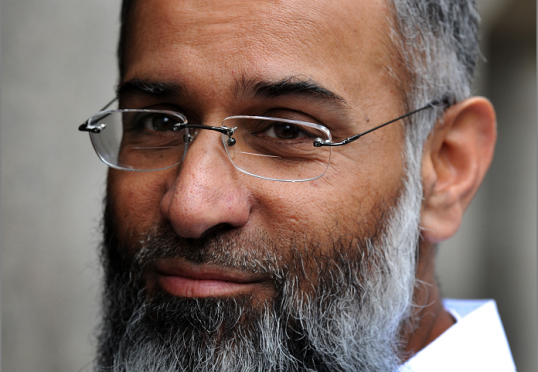British-born radical preacher Anjem Choudary, who has spent the past 20 years spreading extremist views, is facing jail for drumming up support for Islamic State.
The 49-year-old Muslim encouraged backing for the terrorist group in a series of talks posted on YouTube, and recognised a caliphate – a symbolic Islamic state – had been created under an IS leader after it was announced on June 29 2014, the Old Bailey heard.
Despite being a leader figure in the banned extremist group al-Muhajiroun (ALM), and a series of former supporters going on to be convicted of terrorism, Choudary stayed on the right side of the law for two decades before investigators were able to pin him down.
He now faces a maximum possible sentence of 10 years in prison, although judge Mr Justice Holroyde admitted: “There is very little in the way of precedent in the way of sentencing. Although this has been an offence under an Act of Parliament for some time, it’s very far from being one of the most common.”
Choudary and co-defendant Mohammed Mizanur Rahman, 33, were found guilty of inviting support for IS between June 29 2014 and March 6 2015. The verdicts were delivered on July 28, but for legal reasons can only be reported for the first time today.
As the pair were convicted, Mr Justice Holroyde warned them that they face prison, and said they had only shown “a grudging compliance” to the court.
He added: “You have made your disregard for the court abundantly plain.”
Police pounced after Choudary, along with three other influential radicals, lent their names to an oath of allegiance to IS which was posted on the internet.
The trial heard that the preacher, viewed by officers as a key force in radicalising young Muslims, had been the “mouthpiece” of Omar Bakri Mohammed – the founder of the banned extremist group ALM.
He courted publicity by voicing controversial views on Sharia law, while building up a following of thousands through social media, demonstrations and lectures around the world.
In one speech in March 2013, Choudary set out his ambitions for the Muslim faith to “dominate the whole world”.
He said: “Next time when your child is at school and the teacher says ’What do you want when you grow up? What is your ambition?’, they should say ’To dominate the whole world by Islam, including Britain – that is my ambition’.”
Supporters included Michael Adebolajo and Michael Adebowale, the murderers of soldier Lee Rigby, and suspected IS executioner Siddhartha Dhar.
Before accepting that the caliphate was legitimate, Choudary consulted his “spiritual guide” Omar Bakri Mohammed, currently in jail in Lebanon, and Mohammed Fachry, the head of ALM in Indonesia.
On July 7 2014, the trio’s names appeared alongside Rahman’s on the oath, which stated the Muhajiroun had “affirmed” the legitimacy of the “proclaimed Islamic Caliphate State”.
The defendants followed up by posting on YouTube a series of lectures on the caliphate, which Choudary promoted to more than 32,000 Twitter followers.
The father-of-five denied encouraging his followers to back the terror group and insisted the oath had been made without his knowledge. He said of the pledge: “It is completely unnecessary. For the rest of the Muslims it is obedience from the heart.”
Despite protesting his innocence, he continued to express extreme views during his Old Bailey trial, refusing to denounce the execution of journalist James Foley by so-called Jihadi John, aka Mohammed Emwazi, in Syria in 2014.
He told the jury: “If you took an objective view there are circumstances where someone could be punished.”
Choudary, of Hampton Road, Ilford, and Rahman, of Sidney Street in Whitechapel, east London, will be sentenced on September 6.
